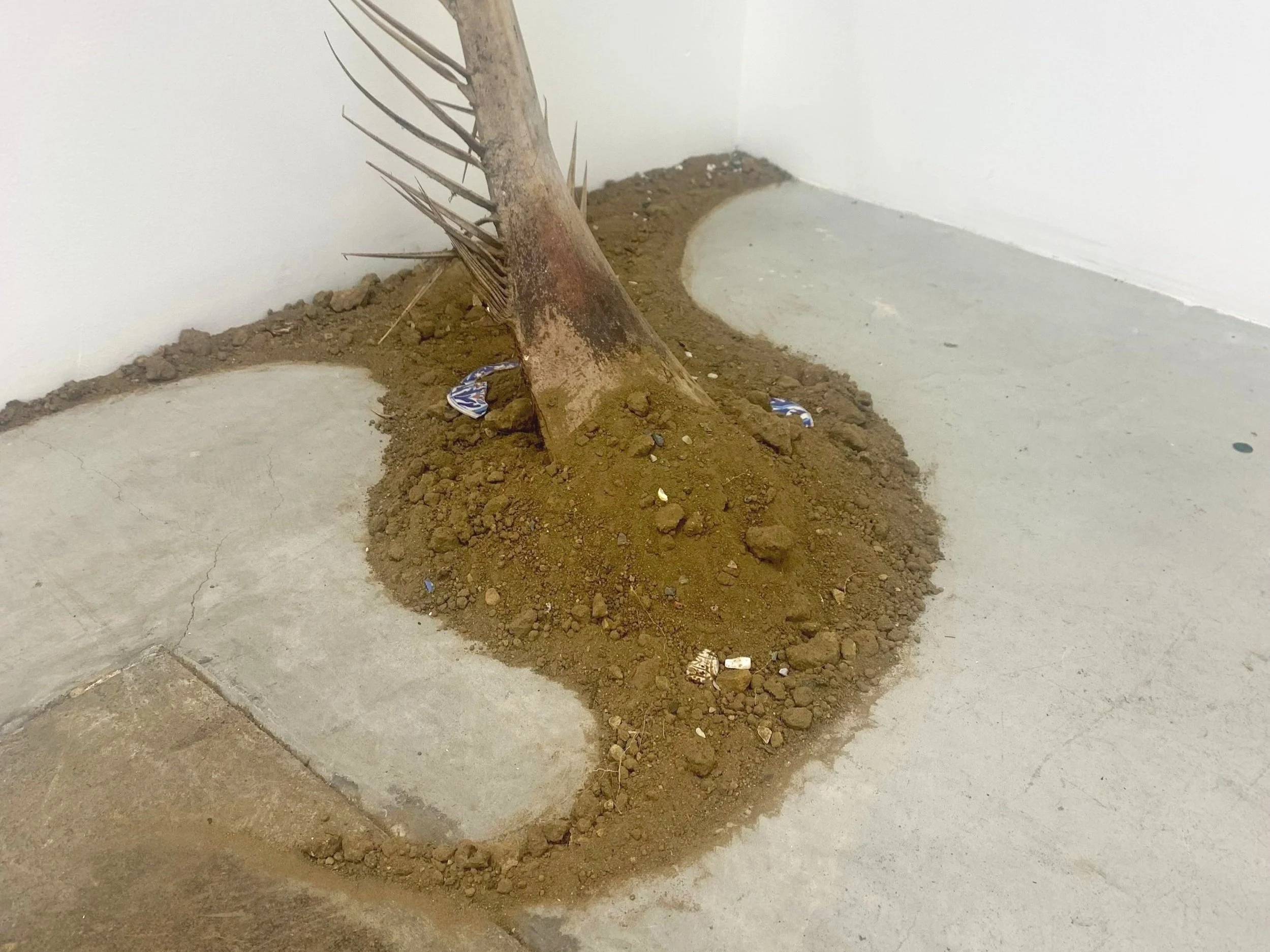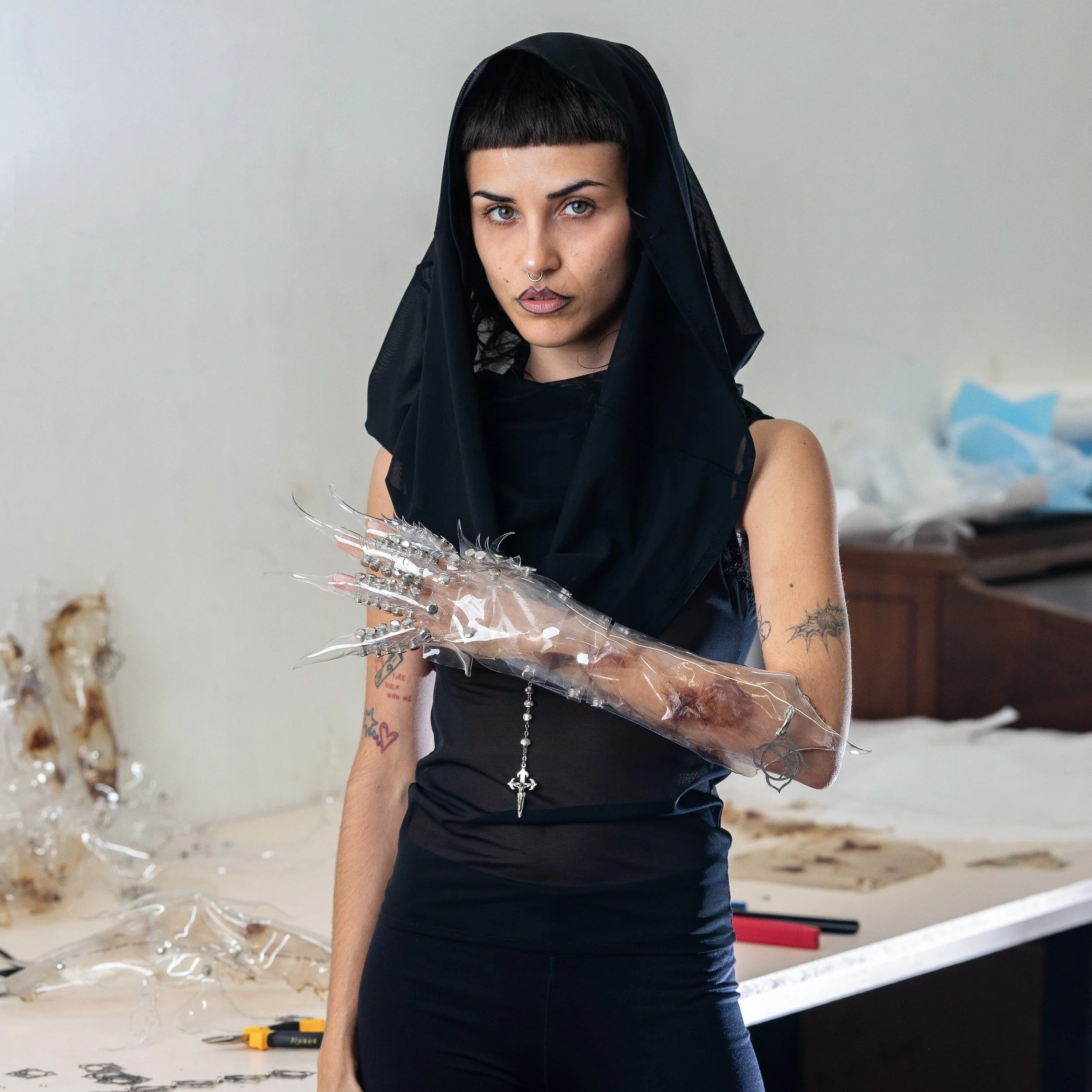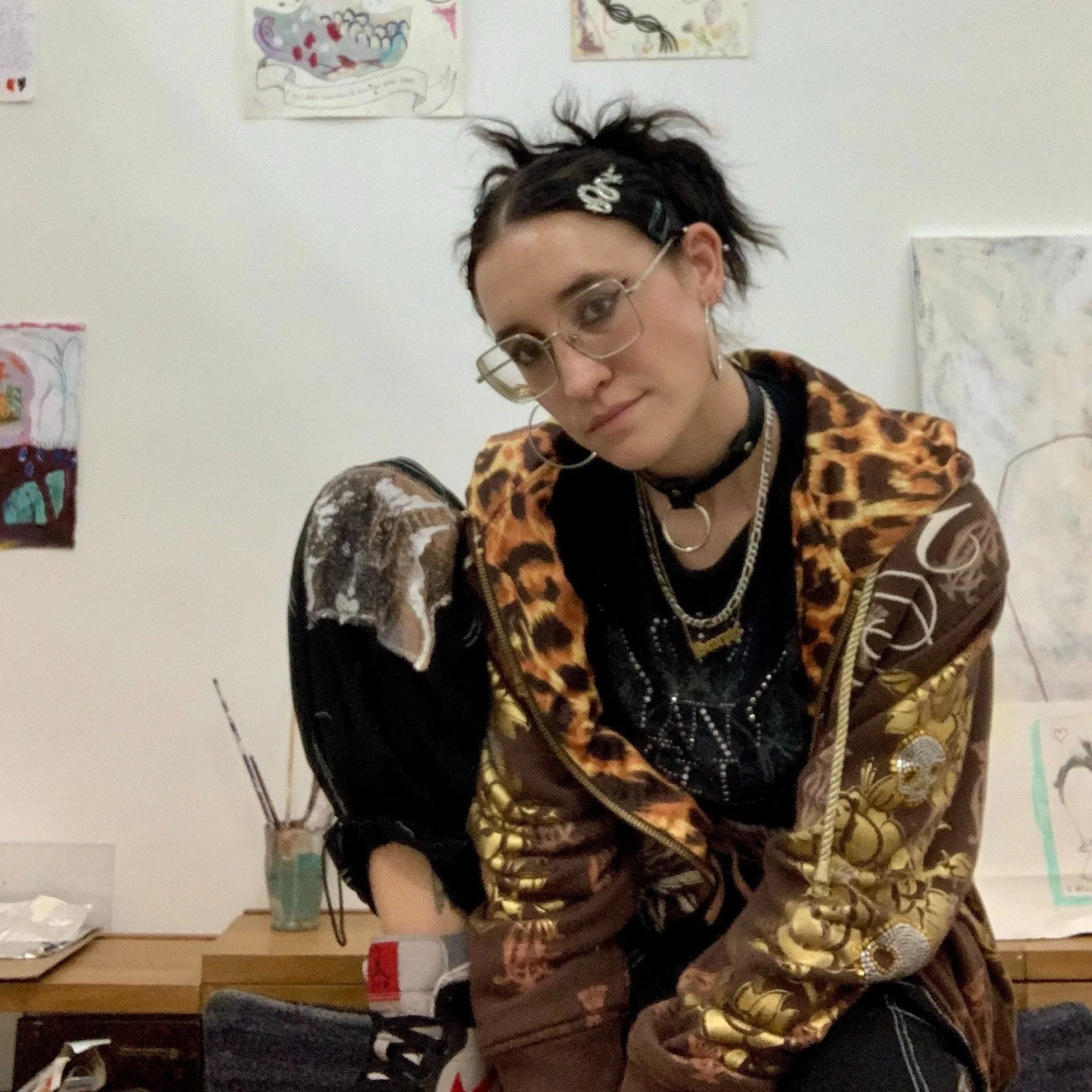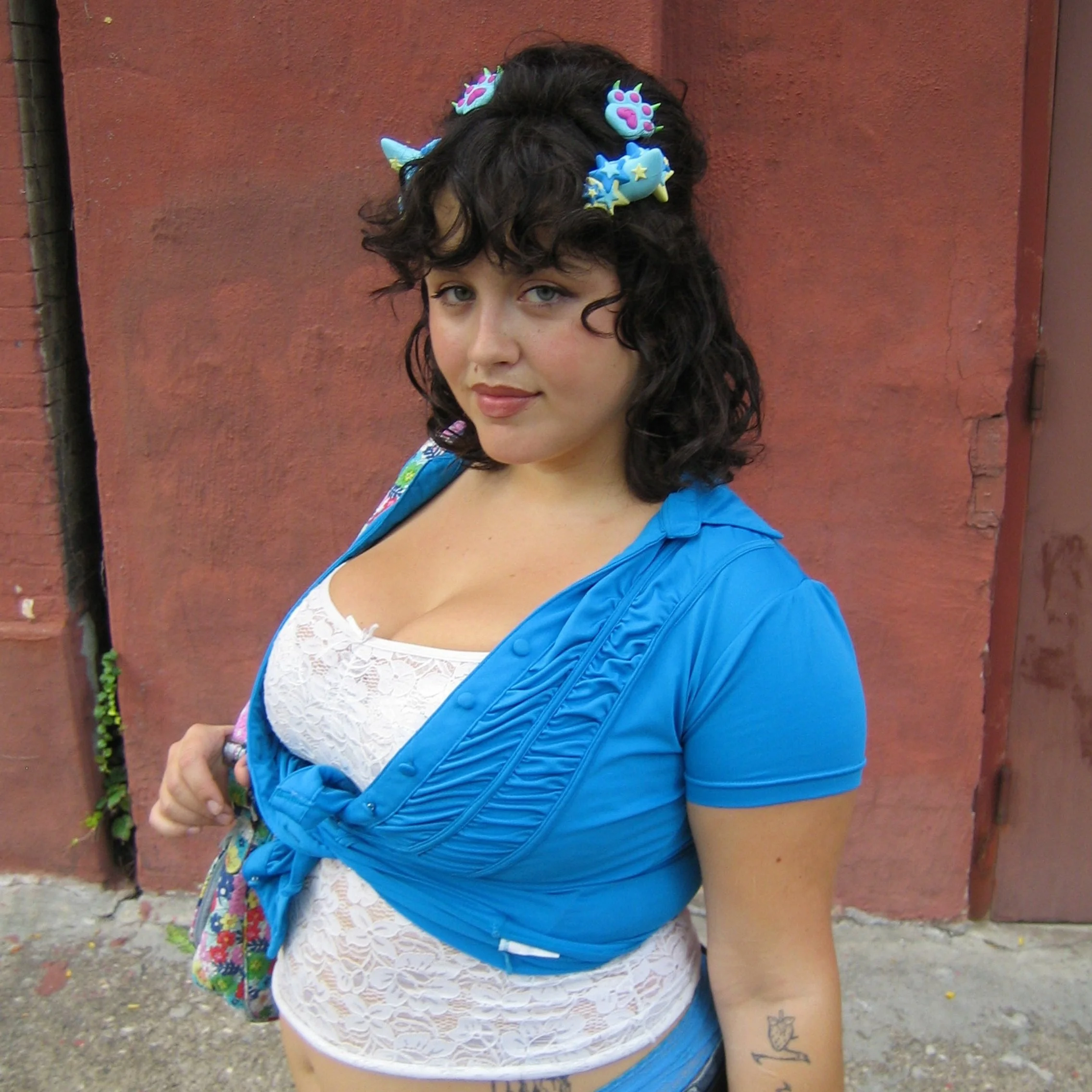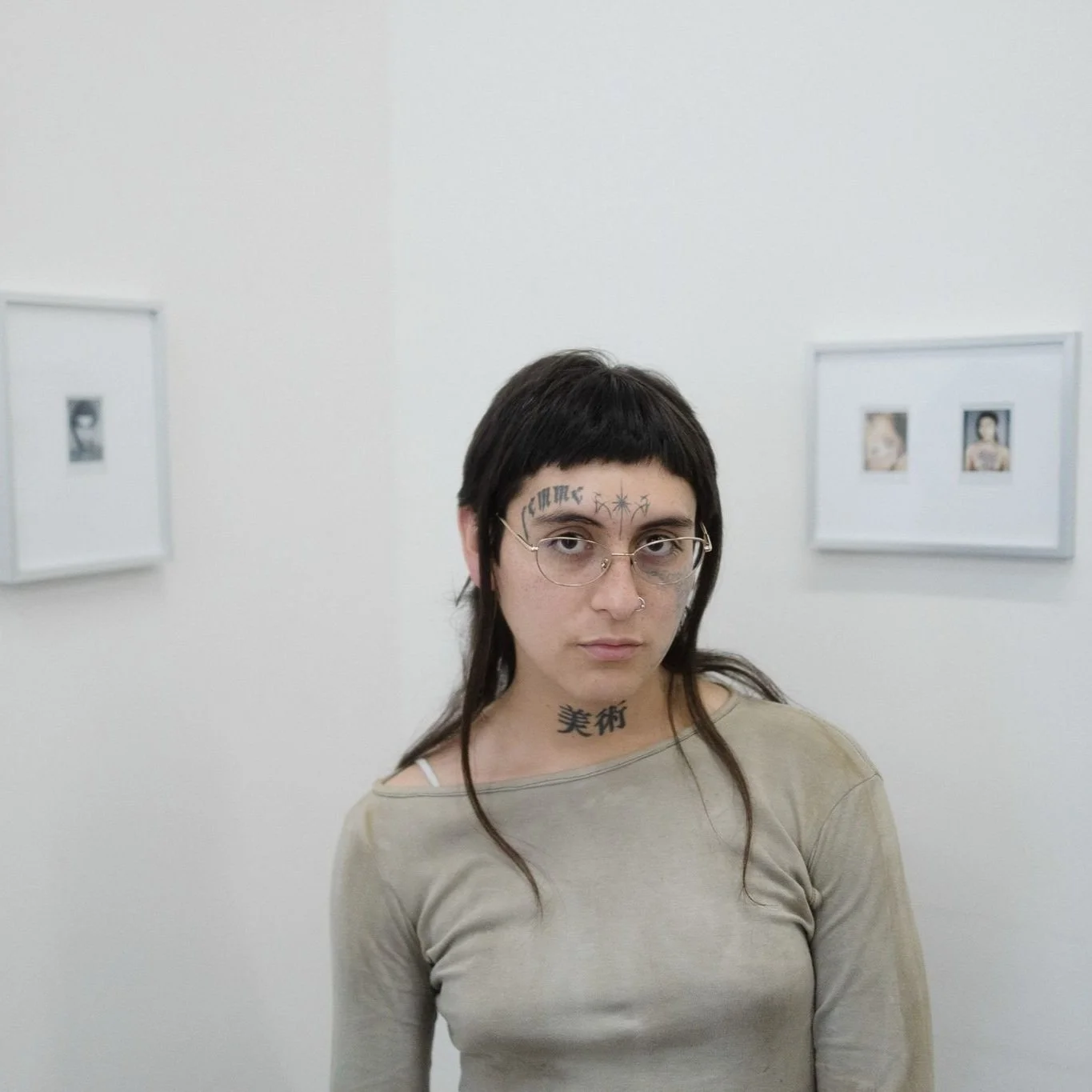Project 45
The Birds Sang Until the Sky Broke
Curated by Julia Cella, featuring works by Ali Arévalo, Sangre de María, Lotte Frances, Annika Sunne, Lisa Vander Plaetse, and Julia Cella.
June 13th - July 31st, opening on Friday, June 13th from 19h, in collaboration with Art Nou 2025
The Birds Sang Until the Sky Broke embodies a fantastical, sacred, queer utopia, home to a world where joy holds suffering, where love and trauma intertwine. Through a richly layered and nonlinear narrative, the artists manifest a fleeting world of our own–an ephemeral sanctuary that embraces all who step within it.
The works carry an undercurrent of the past—of wounds and wisdom—revealing how harnessed histories fuel radical imagination. The Birds Sang Until the Sky Broke becomes a site of exaltation, yet not without spectral echoes. Joy and suffering, past and present, destruction and rebirth—all coexist within this sacred space.
This exhibition is an invitation: to step into a queer utopia where community is both refuge and revolution, where art reclaims and reimagines, and where the act of storytelling becomes an act of divine transformation.
Ali Arévalo is an artist, researcher, and educator based in Barcelona. They graduated in Fine Arts from the Complutense University of Madrid and the ABK Stuttgart, and hold a Master's degree in Contemporary Art History from the Museo Nacional Centro de Arte Reina Sofía and the UCM. They are currently a PhD researcher and a member of the Tiempha research group at the University of Barcelona. They are an artist in residence in Hangar (Barcelona).
Their practice imagines non-binary, queer, and interspecies futures in alliance with technology. They create temporal archaeologies that connect pasts and futures, crafting fantasy worlds as emancipatory tools for dissent. Through this approach, they build universes that take the form of soundscapes, performances, audiovisual works, texts, and sculptures. An exercise of imagination both structures and fragments their work, envisioning times that twist into non-linear temporalities.
Ali works with the fragility of materials and explores biomaterials that evoke scabs, skins, and living fragments: hybrid, sticky creatures. Through these, they address the vulnerability and mutability of bodies. Their work unfolds an imaginary of transformations, doors, thresholds, keys, swords, armors, and fantastical hybridizations that invite us to dream of other worlds. Some of their pieces fade and disappear, while others linger as echoes and traces in memory.
Julia Cella is a multidisciplinary artist and storyteller based in Barcelona. Her practice conjures a symbolic space where stories of pain and beauty unfold in tandem, where constructed characters and mythical landscapes navigate themes of trauma, transformation and identity.
Julia births utopic worlds rooted in emotionally-charged queer narratives and material experimentation. Blending abstraction and figuration, she narrates immersive stories using materials like real and synthetic hair, leather, found objects and paint.
Julia’s visual storytelling blurs the boundaries between fiction and memory, offering intimate portraits of otherworldly beings—part deity, part ghost—that reflect the complexity and resilience of queer experience, and that birth a sacred space where joy holds suffering, creation emerges from destruction, and where emotional and material histories converge.
Sangre de Maria is an artist, storyteller and revolutionary producer based in Barcelona. They illustrate stories through cinematic songs, creating immersive universes inspired by music from all over the world (in particular, from the last 50 years). Sangre experiments with modern textures that dance with vintage sounds.
The haunting beauty of her slow songs contrasts with unexpected beat drops. Although her tales boast a haunted, playful air, Sangre interpolates politically profound messages. Sonorous collages of drums, synthesizers, samples of old songs and speeches, and messages about politics and history open a rhythmic dialogue between past, present and future.
On her first album, EL PRIMER GOLPE, Sangre, as La Valeriana, explores for the first time the abstract character of Valeria: witch, divine, revolutionary.
Lotte Frances is an emerging artist living and working on Wurundjeri Woi Wurrung Country (Melbourne, Australia). Lotte’s work delves into the complex and multifaceted dimensions of queerness, self-doubt, and memory. Through painting, these emotions are conveyed in a distinctive visual language that is both playful and vulnerable.
Lotte's works are informed by their written reflections; the chosen words shape the strokes and marks within the paintings.The juxtaposition of strength and fragility, the familiar and the uncanny, and the interplay between internal and external experiences are central themes in their work. Lotte is a graduate of Fine Art Honours from RMIT University (2020). Lotte has exhibited locally and internationally including Bundoora Homestead Art Centre, Canberra Contemporary Art Space, Laid Bug in Tokyo, Filet in London, La Place Artspace in Barcelona and has published two artist books through Stray Pages Press.
Lotte was the winner of the Bundoora Homestead Art Centre Award and Deans Award for Excellence - 2020 RMIT Honours Graduate Exhibition.
Matuta creates artifacts that tell stories through the intersection of cultural contexts, digital assets and the human body. These artifacts serve as endless vessels of resistance, allowing participants and protagonists to embody multiple and unique facets of both authenticity and fantasy.
Matuta is born out of a refusal to conform, denying the predetermined role of a designer shaped by heteronormative definitions of identity and a lengthy history of colonial industrialization.
They aim to re-centralize vulnerability and self exploration at the core of their design processes. The use of virtual reality and 3D printing allows them to produce hyper expressive pieces outside of traditional design and development processes, staying closer to themselves and the social currents of the terrains they inhabit.
Annika Sunne (She/They), non-binary transsexual, born in Mexico City on April 29, 1998, to a Spanish witch mother and a Mexican taxi driver father. They are a designer and emotional artist, currently residing in Barcelona.
Their work explores themes such as gender, love, childhood, and the identity and emotional contrasts they experience, approached in a three-dimensional, performative, and collage-like manner.
Drawing on memory and feelings as their primary creative resources, they infuse their work with intangible sensations, where textiles, metal, and photography, along with countless discarded objects, give rise to and construct symbiotic ecosystems that propose new visual abstractions.
